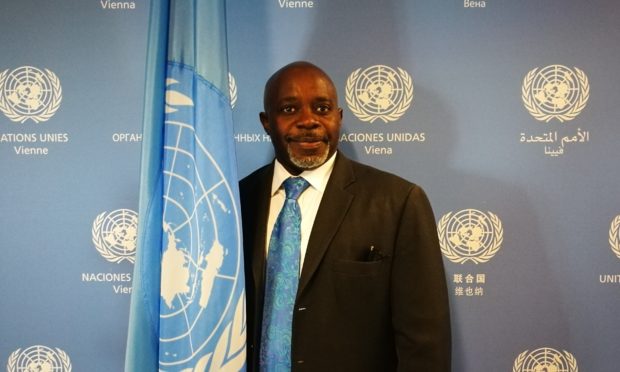A surge in legal highs and booming online trade has thrown the war on drugs into “crisis mode”, a top UN expert will tell a Dundee conference.
Dr Justice Tettey, chief of the Laboratory and Scientific Section at the United Nations Office on Drugs and Crime (UNODC), will warn the internet has “changed everything” and made it “impossible” for governments to shut down international trade.
Dr Tettey will explore North America’s opioid crisis, the growth of online drug dealing and an explosion in the popularity of new psychoactive substances at the 2019 Leverhulme research centre annual lecture at Dundee University on June 18.
The presentation, A World Safe From Drugs, will also highlight the role the UN in supporting countries in their efforts to address the issues.
An investigation by The Courier previously revealed how drug and recovery communities in Tayside were specifically targeted online by individuals offering to send send illegal pills and tablets through the post, often from foreign countries.
Dr Tettey warned the internet has not only facilitated increased awareness of a range of new legal highs but also “provided a way for all drugs, legal and illegal, to be traded”.
He said: “Previously people would go round the corner with their dealer and buy what they wanted based on what was available. Now they can order any drug from anywhere in the world.
“The range of substances on offer is not limited by what is available locally. The sheer number of shipments taking place means that couriers cannot check every individual parcel. It is impossible to stop this cross-border trade entirely.
>> Keep up to date with the latest news with The Courier newsletter
“This means we need to work with partner agencies to both find out what these drugs are and disseminate information that will reduce harm and save lives.
“We have got to grips with the last crisis but we know there will be another one along in the future and we need to be ready for it.”
Dr Tettey said the UNODC has been in crisis mode since the phenomenon of legal highs took hold across the world and conceded this has posed “unprecedented challenges” for governments and health authorities globally.
Dundee’s Leverhulme Research Centre for Forensic Science is investigating new ways for law enforcement and forensic scientists to detect illicit drugs faster, cheaper and more effectively.
Such new knowledge and technology could facilitate on-scene analysis and evidence collection while minimising contamination.
Dr Tettey believes partnerships with academia is vital if national and international bodies are to get to grips with the harms caused by the global trade in narcotics.









